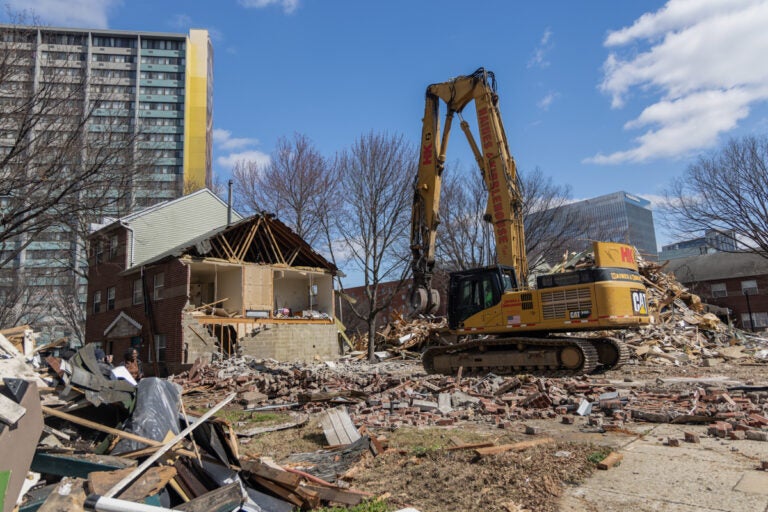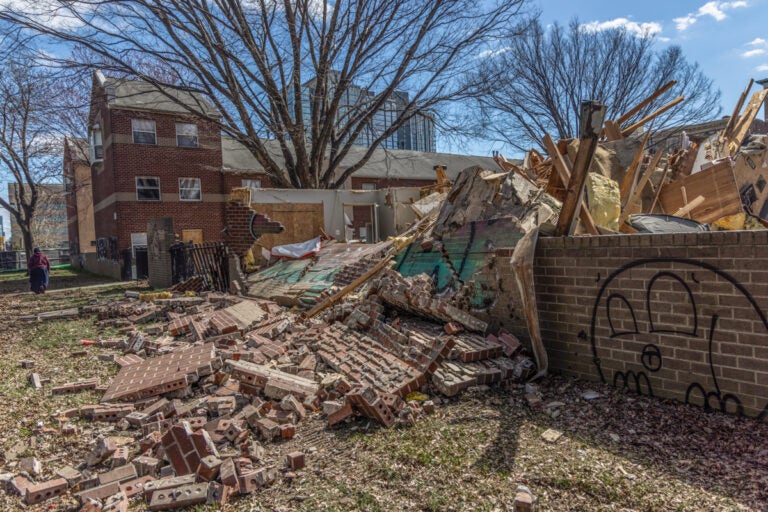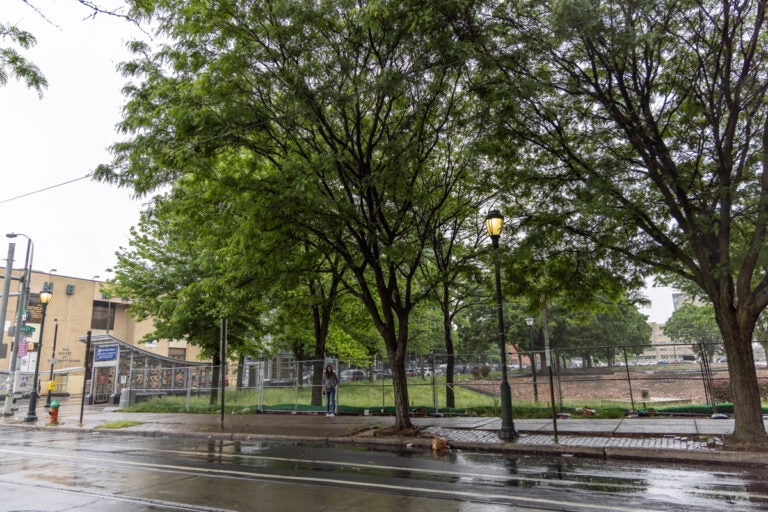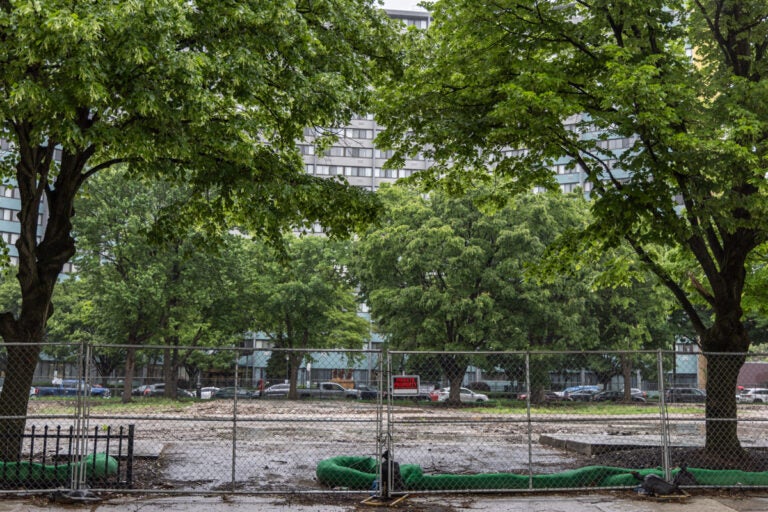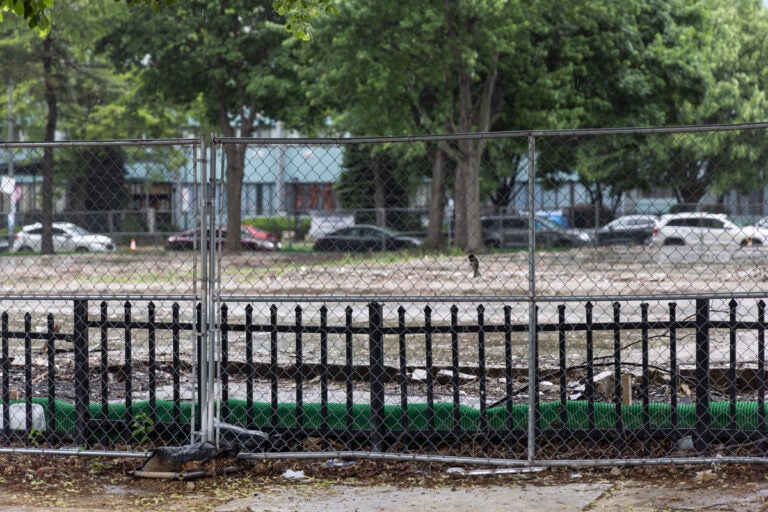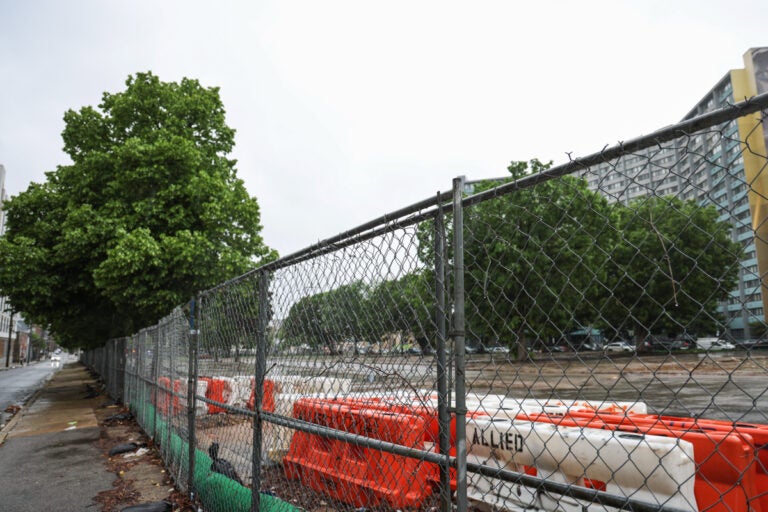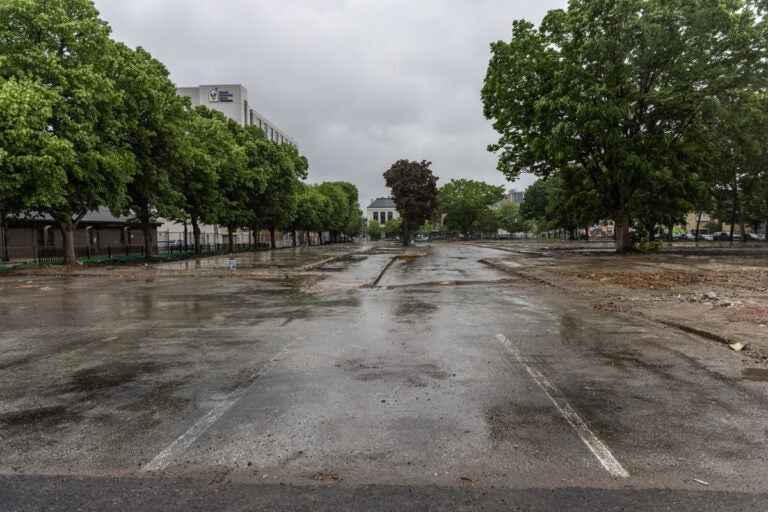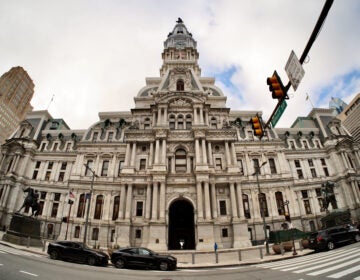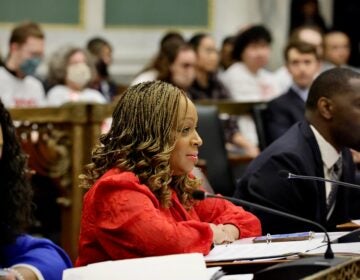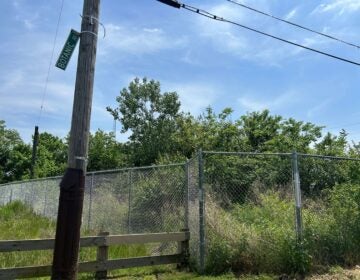Mayor Parker’s budget leaves UC Townhomes agreement in limbo. Housing advocates aren’t happy
The Philadelphia Housing Authority is poised to build 70 units on the former site of the University City Townhomes. It needs funding from the city before that can happen.
Listen 1:12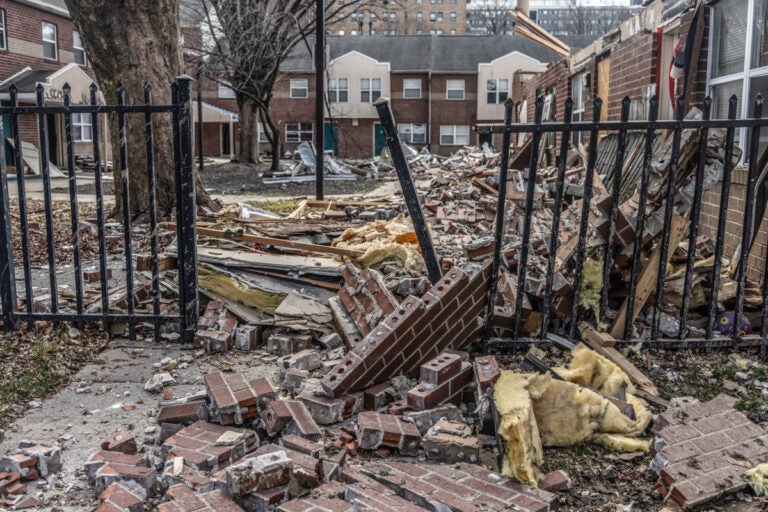
Demolition of the UC Townhomes in March of 2024. (Kimberly Paynter/WHYY)
Have a question about Philly’s neighborhoods or the systems that shape them? PlanPhilly reporters want to hear from you! Ask us a question or send us a story idea you think we should cover.
About a year ago, the city settled a federal lawsuit agreeing to build 70 units of affordable housing on a section of valuable land previously occupied by the University City Townhomes.
Now, the future of the project at 39th and Market streets appears murky at best.
Mayor Cherelle Parker’s first budget proposal does not include funding for the $14 million development. There’s also no mention of the units in her administration’s five-year plan.
“At this point, I’m not really prepared to talk about what type of priority it is for this administration, but building housing is certainly a priority of this administration,” said Deputy Mayor Aren Platt in March during a City Council budget hearing.
A Parker administration spokesperson declined to comment.
The Philadelphia Housing Authority wants to build the new development, but the work is contingent on city funding “to offset the cost of redevelopment,” said spokesperson Nichole Tillman.
In late December, at the tail end of then Mayor Jim Kenney’s second and final term, the city made a “firm commitment” to allocate $8 million to the development, according to a letter obtained by WHYY News. But PHA never received the money.
City of Philadelphia's commitment to PHA for redevelopment of University City Townhomes by ddodson on Scribd
“PHA is optimistic that the city will in fact provide the necessary funding to facilitate the redevelopment of affordable housing on this important site, if for no other reason to preserve affordable affordability in that community,” Tillman said in an emailed statement.
With backing from the government, IBID built the University City Townhomes with the explicit goal of providing affordable housing in a section of West Philadelphia some still refer to as the Black Bottom. This was after the city demolished hundreds of neighborhood homes in the late 1960s and early 1970s to build a science and technology campus — what today is known as the University City Science Center.
The roughly 3-acre site, once home to predominantly Black families, sits in the same swiftly gentrifying section of West Philadelphia the University of Pennsylvania and Drexel University call home. Home prices in the neighborhood have skyrocketed since 2000, pricing out working-class families.
IBID Associates, owners of the University City Townhomes, filed the lawsuit in 2022 after nearly two years of private negotiations with City Councilmember Jamie Gauthier, whose district includes the site. The suit came in response to legislation Gauthier introduced the year before that temporarily barred developers from demolishing the townhomes. The owners argued the measure violated their “constitutionally protected right” to sell the blocklong complex, calling it an abuse of power.
Last year’s settlement was considered a “major victory” by Gauthier. In addition to the 70 units, IBID agreed to pay the city $3.5 million for a “tenant fund.” Under the agreement, the money would go to townhome residents, who were forced to move to make way for new development. The exodus followed IBID’s decision not to renew its affordable housing contract with the U.S. Department of Housing and Urban Development after more than 40 years.
Gauthier, one of the council’s fiercest housing advocates, is frustrated by the Parker administration’s lack of commitment to fund the project.
She thought it was a done deal.
“It was my understanding that this was something that we were committed to as a city, and I have to say I’m disappointed that my office is still in the place of having to fight for the residents of the UC Townhomes after spending thousands of hours in court to win a historic settlement agreement and after committing to the federal court as well as the community that we would build new permanently affordable housing,” Gauthier said.
To her, the administration’s position runs counter to its promise to prioritize affordable housing.
“This is more than just any development. This development would solidify the ability for 70 working-class families and households to live in University City,” Gauthier said. “That should be an important aspect of this affordable housing conversation. Affordable housing, housing for working-class people, needs to be present in the most desirable neighborhoods in this city.”
Consuela Astillero spent nearly 40 years at the University City Townhomes. Like her neighbors at the complex, she obtained a housing voucher through PHA after the owners announced they were selling. She used it to move to a rowhouse in Southwest Philadelphia’s Eastwick neighborhood, a low-lying area with a long history of flooding.
Astillero, whose income is tied to monthly Social Security disability checks, said she has considered moving back to West Philadelphia once the 70 units were completed. Former tenants were told they would get priority if they wanted to return.
Now she’s concerned the city will dash that “dream” by reneging on its promise.
“It’s disgusting,” said Astillero. “If they can find money for all kinds of other … not so important stuff then they should be able to find money to put these apartments up so people can have a place to lay their heads.”

Subscribe to PlanPhilly
WHYY is your source for fact-based, in-depth journalism and information. As a nonprofit organization, we rely on financial support from readers like you. Please give today.





